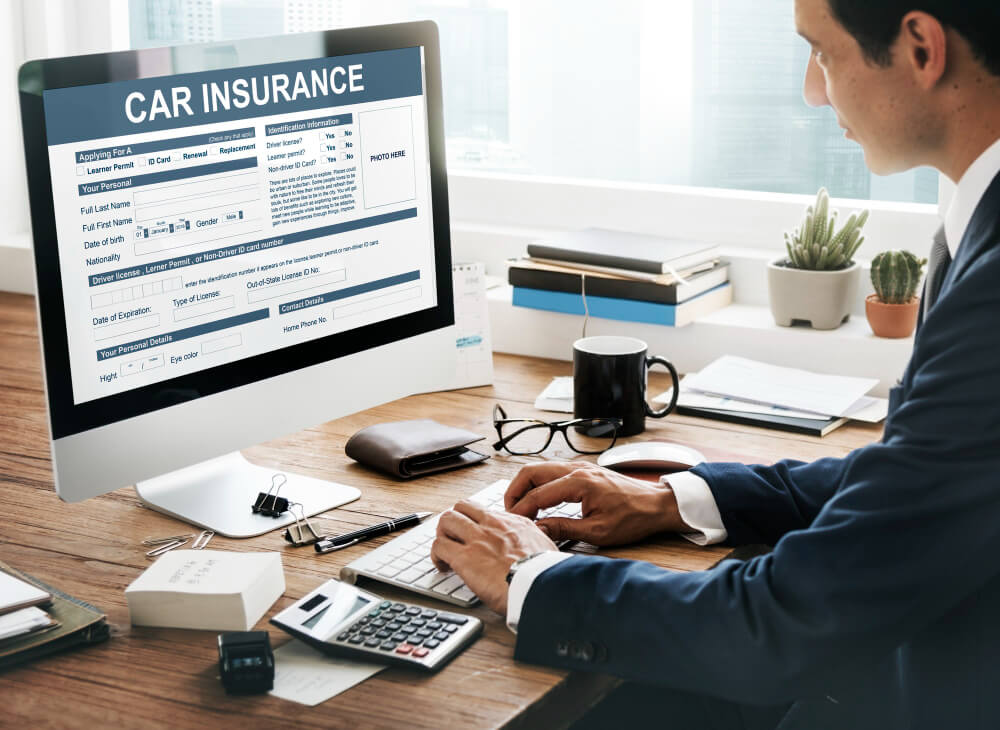4 Steps To Choosing The Right Car Insurance Policy For You
5 Mins Read
Published on: 11 September 2021
Last Updated on: 21 November 2024

toc impalement
Shopping for car insurance is in no way fun. In fact, it can be both stressful and confusing. With so many options available, it becomes frustrating weeding through them.
One company has a lower premium but doesn’t offer roadside assistant, and another is more expensive and offers coverages you don’t need. So, how do you decide which ones are right for you? We’re here to answer this question for you.
Figure Out How Much Coverage You Need
Your first step would be to find out what your state’s minimum insurance requirements are and if you want more than it offers. Most states require liability coverage which is meant to protect other drivers and not you or your vehicle. If you have a lot of assets and can afford them, purchase enough liability coverage to protect them.
This is because if you have only $50,000 in bodily injury liability coverage but $100,000 in assets, they can go after you for any medical bills that your insurance company doesn’t cover. On the other hand, if you don’t have any assets you can be sued for, you don’t need the extra coverage.
There are a few things to consider when determining if you need comp and collision. If you frequently have minor accidents where you end up having to pay a few hundred for repairs, or if you have a long commute to work, you may want to have full coverage.
Many people aren’t sure what the difference between comprehensive and collision is. The main difference is that collision is like it sounds and covers damage related to hitting something. Comprehensive insurance covers damages if your car is stolen or damaged while collision covers damages as a result of an accident.
Liability insurance covers both bodily injury and property damage that occurs as a result of an accident and will protect you against lawsuits. Failing to have liability insurance can result in your license being suspended and jail time.
Know What Affects Your Insurance Premium
There are quite a few factors that affect how much your insurance premiums cost. Insurance companies determine your cost based on how much of a risk you are to insure. They use your driving history, car makes and model, zip code, and other relevant information to determine how much you’re going to pay.
The first thing they consider is where you live. If you live somewhere with a high crime rate or an area that’s highly populated, you can expect to pay more. Your age is something that is taken into consideration too. The more experience you have, the less you will have to pay. The kind of car you drive matters too.
Interestingly enough, the older your vehicle is, the less you’ll pay. Some people don’t realize that the parts and cost of repairs make the premium higher, even with the new car’s safety features. When dealing with insurance companies, most people don’t realize that your credit score influences your yearly premium. Insurance companies believe that if you are responsible in your daily life, you’ll be responsible for driving too.
Another thing you’ll want to look into is your deductible. The deductible is the amount you pay out of pocket to cover to pay for your car’s damages. It makes sense that a higher deductible will save you more money than choosing a low deductible. You have to take into consideration how much you can afford to pay for insurance compared to what you’d have to pay in case of an accident.
Compare Different Rates
One of the best things you can do when looking for car insurance is to compare auto insurance quotes. This is one of the easiest ways to compare coverages and prices. Make a list of the ones you are most interested in, and then see how they can benefit you.
While you may be tempted to take the one with the lowest rates, you need to make sure to do your research. You’ll want to see what coverage options each company offers, any discounts you qualify for, and the company’s reputation. There will be more on this in the next section. You can play around with different deductibles and other coverage options to see which works best for your situation.
Third-Party Reviews & Company Reputation
Once you compare the rates of the different insurance companies, pick out a few that you’re most interested in and then research their reputation. You can use third-party sites like the Better Business Bureau, Trust Piolet, J.D. Power, Consumer Reports, and the National Association of Insurance Commissioners to see if they have had complaints filed against them.
One of the most important things you want to determine is how often and why they deny claims. You are paying all of this money for insurance, so you’ll be protected in case the need arises. You don’t want to have to worry about a denial letter coming in the mail instead of a settlement. If they do have a high rate of denials, it’s probably best to rule them out.
Choose an insurance company that is a top-rated insurer. You want to choose one that is both reliable and reasonable. They should offer fast and fair claim settlements, have excellent customer service, and answer any questions you may have, and not just when it’s time to renew your policy.
The biggest downside of smaller insurance companies is while they have low rates, they can be challenging to work with. If you have an accident, they may tell you that you weren’t covered or not covered for certain aspects of your accident.
This is not a good thing to hear when you’re trying to get your car fixed. You’ll also want to make sure that you have insurance no matter where you are in case you’re traveling and are in an accident in another state.
Although price is undoubtedly an essential factor in determining which insurance company you should go with, it shouldn’t be the only factor. You need an insurance company that will be there when you need it and not one that makes you wait for months. Shopping around is the best way to find the best insurance for your needs without breaking the bank.
Read Also:


















Comments Are Closed For This Article